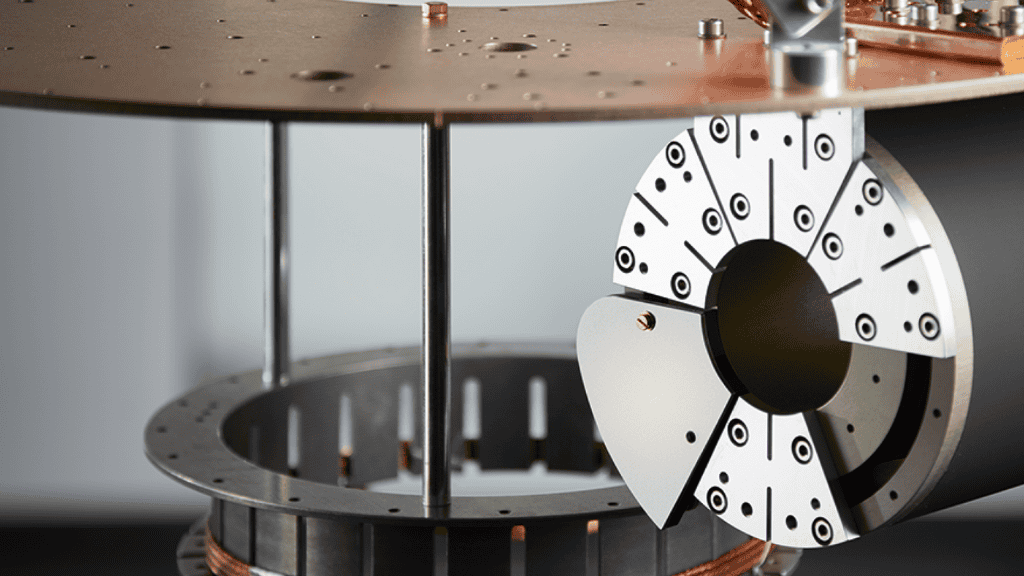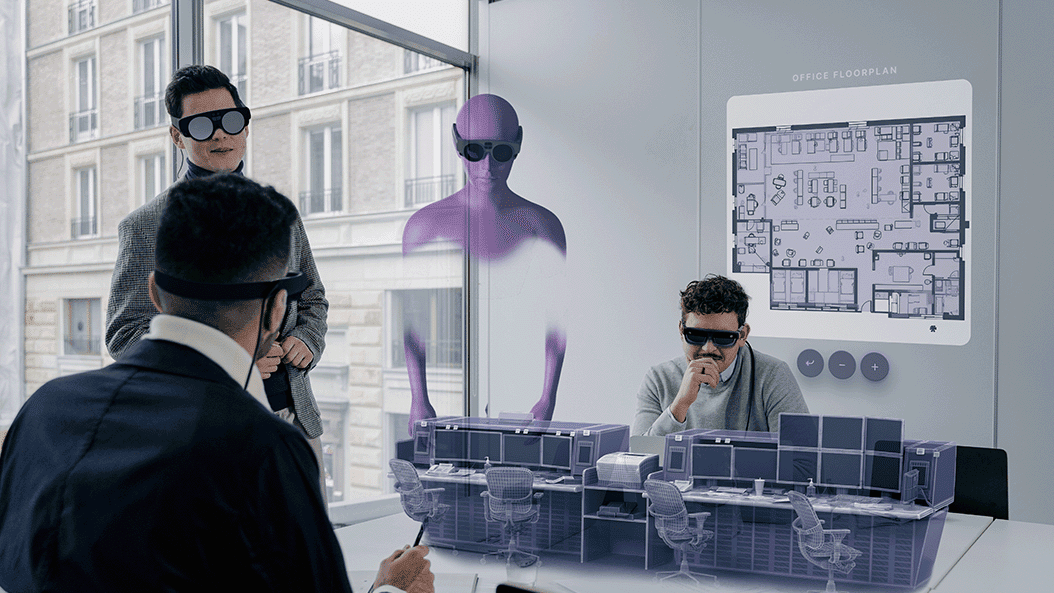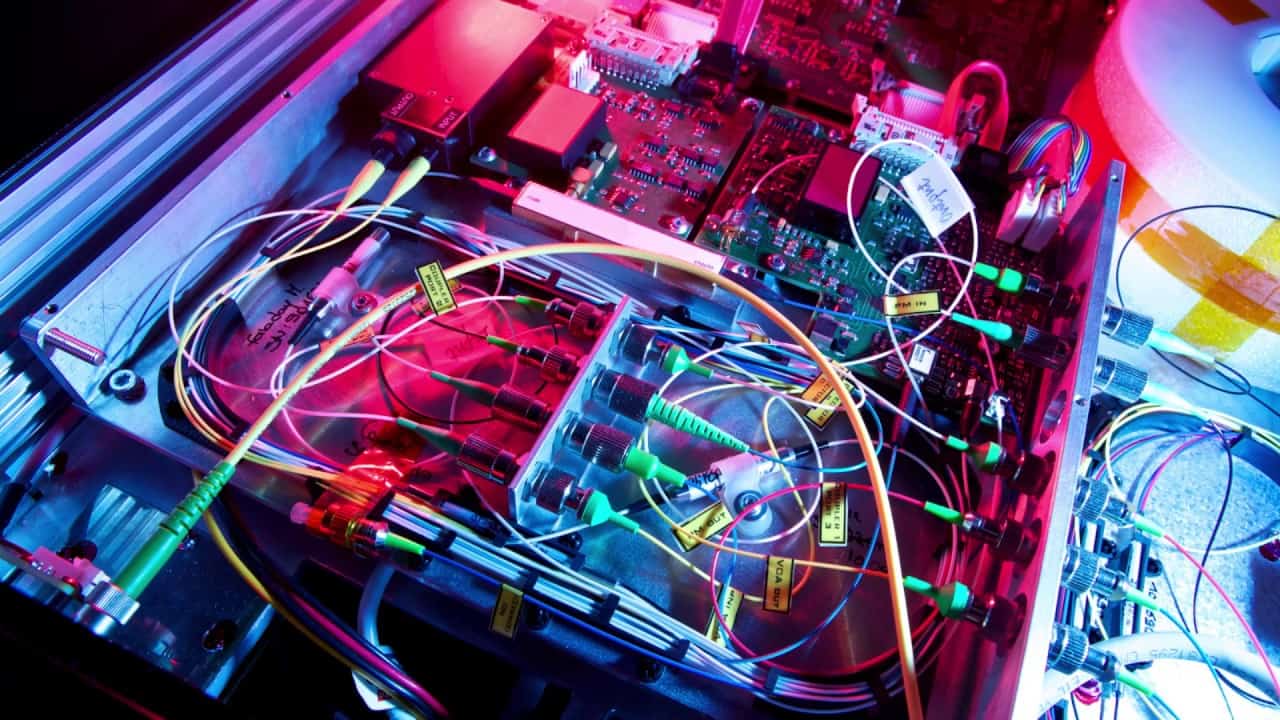Quantum computers have been hailed as the next technological leap that will enable us to perform computations millions of times faster than classical computers. However, for many, quantum computers are still a thing of the future as the first generation of quantum computers have been error-prone and limited by the number of qubits available to perform computations. Professor Enrique Solano founded Kipu Quantum to dispel these beliefs and show that quantum computers can be useful now. In this interview, he talks about his quest to bring quantum advantage to real world applications and the geopolitical challenges faced by the European quantum community.

Chief Visionary Officer and Co-Founder, Kipu Quantum
Prof. Solano is the Chief Visionary Officer and co-founder of Kipu Quantum. He is an influential leader in interdisciplinary fields related to quantum computing, quantum simulation, quantum artificial intelligence, and quantum technologies. He spent 12 years in Bilbao, Spain where he was Ikerbasque Professor at the University of the Basque Country and the director of the Quantum Computing and Quantum Technologies (QUTIS) Center. In 2018, he accepted the position of Distinguished Professor of Physics at Shanghai University, where he also became director of the Quantum Artificial Intelligence for Science and Technology (QuArtist) Center. He was Chief Scientific Officer in Quantum Technologies at the AI company DeepBlue Technology based in Shanghai in 2019 and CEO of IQM Germany during 2020. Prof. Solano has a PhD in Physics from the Federal University of Rio de Janeiro in Brazil and was a researcher for over 7 years at the Max-Planck Institute for Quantum Optics and the Ludwig-Maximilians-Universität München in Garching and Munich, Germany.
Quantum computers use the principles of quantum mechanics to perform tasks much faster than classical computers. Unlike classical computers, which use bits (0s and 1s) for processing information, quantum computers use quantum bits (qubits).
These qubits can exist in multiple states simultaneously, allowing quantum computers to handle complex calculations and solve certain problems that are practically impossible for classical computers. This quantum advantage could revolutionize areas like cryptography, scientific research, life science, finance, chemistry, artificial intelligence, logistics, and optimization. The more qubits it has, the more powerful and reliable a quantum computer becomes. More qubits also allow for error correction, as you can use some qubits to double-check and fix mistakes in others.
However, the biggest problem facing quantum computers is that the number of long-lived qubits they need to outperform classical computers and solve complex tasks does not match the hardware available today. Millions of qubits are estimated to be needed to perform some of the useful applications of quantum computers, but right now only a handful of organizations have more than a few hundred. To speed up the path to useful quantum computing and fulfill its potential, the resource requirements need to be strongly reduced.
Kipu Quantum aims to enable near-term quantum usefulness with their proprietary quantum algorithms and low-level quantum computing software. Their approach, which uses quantum algorithms based on analog, digital and analog-digital compression, aims to reduce the number of qubits needed to perform tasks, lower the number of operations that need to be performed and translate the digital algorithm into the most suitable analog building blocks of the underlying hardware architecture.
Your academic career spans over 20 years. You were a researcher, professor, and the director of several quantum research centers in multiple countries. What made you decide to turn to entrepreneurship?
Some years ago, I became one of the main critics of the quantum computing community. I realized that the academic environment was losing power in this field and there was a strong shift not only on the intellectual property front, but also in the relevance and impact of the work. I was not happy with that and I decided to stop just being a critic, and participate. And I have never regretted this decision although it was a difficult transition. Entrepreneurship was a new domain for me. There are more variables involved, a different set of skills and knowledge is required, as well as a fundamentally different character profile for managerial and business leadership. But I’m learning every day and also teaching every day. Because of this merger of science and technology, the possibility of using quantum computers and making a real product is a beautiful challenge.
Not a lot of startup names have a deeper meaning, but Kipu is named after an intricate system of knotted strings that store and convey information developed by ancient Andean cultures. Why did you choose this name?
When I was in Bilbao, I was collaborating heavily with the Google quantum AI team. We even published a couple of very influential Nature papers on quantum computing and simulation together. During this time, I was going frequently to California and that area. One of my favorite places to go while there was the Museum of Computer History in Mountain View in the heart of Silicon Valley. When you enter the museum, one of the first things you see is a kipu. I was born in Peru, so I knew about kipus and I had heard people refer to them as a lot of things: systems to encode information, even secret accountancy or finance strategy, but it was the first time I saw people refer to them as computing devices. The more I thought about it, the more I liked it.
I started playing around with the name, because in English, the term they use is quipu so I thought quipu, quantum information processing unit. I decided one day, I would use it for something. When we created Kipu Quantum here in Germany, I knew now was the time. However, I wanted to keep the original word from Quechua which is the language of the indigenous people of Peru who invented the kipus. The official spelling for it in Quechua is khipu, but there are some variants that allow for kipu without the h. I thought this was the best option as an extra h might be too distracting in an international setting. The kipu knot is also part of our logo and due to its shape, is also the Q in Quantum. Then, of course, people joke that, since my nickname is Kike, Kipu stands for Kike information processing unit. But the real story is the one I told you.
What are the current limitations of quantum computers?
The main limitation in my opinion is human creativity. Kipu was designed with the notion that we are leading a second generation of quantum computing startups, where the first one did wonderful things, but the hardware was just not ready. When we started Kipu, there were already official claims by hardware companies that they were outperforming classical supercomputers. Some of them were contested, but by now, nobody would deny that there are at least a few claims that nobody can contest, that quantum computers have already outperformed classical computers.
But then, why are we not celebrating quantum advantage or useful quantum computing? The reason is because the problems that were solved using quantum computers were only at the level of proof of concepts, very academic, nothing that could be used at industry level. When we created Kipu, we asked ourselves, is there a way to use the hardware available now to encode the relevant industry use cases? The answer was yes, absolutely. And we didn’t ask for miracles from the hardware, we put the weight of the challenge on our shoulders, on our creativity, on the genius of our Kipu team. From this point of view, our business model does not rely on the success of others. We accept and take the hardware that is already available and we develop proprietary smart encoding and deep compression of quantum algorithms in a digital, analog, and digital-analog manner, sometimes using all at the same time. And all these methods of compression – digital, analog, and digital-analog – were invented by us.
There is different terminology associated with the usefulness of quantum computers. What is the difference between quantum supremacy and quantum advantage?
Quantum supremacy is when a quantum computer solves a problem that a supercomputer center cannot, but supremacy is still in the category of useless. It’s an academic demonstration, it shows that quantum computers are better, but they are not solving our problems yet. The community decided therefore to use another term, quantum advantage, for when quantum computers outperform supercomputing centers while solving a problem that industry and society need to be addressed.

Invest in Startups
As one of Europe’s most active venture capital investors, we grant qualified private investors access to top-tier European startups. With investments starting at EUR/CHF 10’000, you can build your own tailored portfolio over time and diversify across stages and sectors.
What is quantum advantage for Kipu?
Quantum advantage for us will be when Kipu will be among the first companies in history to encode several industry use cases in a quantum computer that is commercially available and accessible. And after we announce our multiples successes, suddenly, we have a queue of people that we never knew before in our offices saying: I want to pay you to deliver a solution that will add value to my industry or society. That’s a moment of, let’s say, worldwide acclamation. When you don’t have to look for the customers, the customers will come to you, and this is not happening today as frequently as quantum computing startups would want. There is a natural disappointment given that the first generation of startups could not deliver useful quantum computing solutions. Now the customers are speculating, they are looking for proof of concepts, but most of them are convinced that the quantum computer is still something in the far future. Kipu is the first company worldwide whose unique selling point is to make quantum computers useful now, along 2024-2025. That’s what I call the start of the quantum advantage era, the moment when the level of usefulness is no longer disputed and the customers tell you, I want to pay for what you have and can deliver now.
Kipu develops algorithms for quantum computing. How different is programming for classical computers versus quantum computers? Is there a skill gap between those who know classical computing languages and those who can operate a quantum computer?
When users of quantum computers code quantum algorithms, they actually use classical computing programming languages like Python. So the code is written in the usual languages, but with the understanding that, at the end, it will operate on qubits. As for the transition, I don’t know how widespread this phenomenon is, but I have been giving quantum dissemination lectures at elementary and high schools for many years and I was very surprised to find that students, sometimes even teenagers, have already accessed quantum computers in the cloud and operated on them very easily. They may not understand the subtleties of quantum physics, but right now it is quite easy for anyone who loves coding and writing programs to access quantum computers and write algorithms on them. This is one of the ways many people nowadays wind up pursuing a career in quantum physics.
What areas would benefit most from quantum usefulness?
At Kipu, we consider ourselves to be part of the second generation of quantum startups and we do not want to fall into the overhype of the previous generation. We will not make unverifiable claims about the future. I want to talk about the present, about what is achievable now. We will be able to solve optimization problems, optimization of networks, logistic issues, design of specific chemical molecules, biomolecules, artificial intelligence, finance, and security issues such as factorization. We are, for example, already combining machine learning with quantum computers to identify images that can be related to illnesses in medicine. We are doing all this from the hardware and the algorithms to the use case rather than the other way around which could lead us to talk about applications that might be decades away.
How is artificial intelligence impacting quantum computing?
I think the merger of quantum computing with artificial intelligence is unavoidable. Generative AI and other AI technologies are taking over many industrial and societal operations. There is no present and no future if quantum computing ignores or develops independently from AI. At Kipu Quantum we understand this and we will excel at such a merger with quantum artificial intelligence algorithms, architecture designs, and, sooner than later neuromorphic quantum hardware approaches.
You recently announced a project in collaboration with CINFO to help Galician telecommunication network operator R analyze its optical fiber communication network for improvement of its resiliency. What does this project mean for Kipu?
We are very proud of this project. We signed an agreement for collaboration with CINFO, a leading IT company in Galicia in July 2022. They told us, we have this telecommunications company, R Galicia, which is interested in knowing how networks can be designed so that if some nodes break down, the other routes recover the connectivity so customers always have available signals. This is a beautiful problem that is very well known in computer science and quantum computing. To solve it, we are using commercially accessible analog quantum computers. One of them is the Canadian D-Wave Systems that uses 100 qubits and the other is QuEra, from Boston in the United States that has 46 qubits. This is a large number of qubits and we consider that we may soon reach the point where quantum computers can solve this problem of resilience in networks.
What are the main challenges ahead for Kipu?
I think it’s the geopolitics of the field. Most of the leading quantum computing hardware companies right now are in the US, Canada and China, very few in Europe. We access them via the cloud through paid services provided by Amazon or Microsoft. In Europe, we have companies like Pasqal, Alpine Quantum Technologies, or Oxford Quantum Circuits, but very few other European companies are approaching the level of quantum advantage any time soon. We are in this position where we want to use the most advanced hardware to tackle quantum advantage, but that might mean that we will end up developing the best algorithms for others and depend on them technologically for the hardware access. There is also the risk of a shutdown of quantum access if we don’t develop our own hardware.
As much as we would like to think only about the money, we need to ensure first of all that the business of quantum computing is sustainable, that we will not lose control of the business, product and technology to others. This is what happened with classical microelectronic chips, for example. Europe doesn’t have a leading company fabricating chips for electronic devices. This is a historical failure. Luckily, Europe is committed to not making the same mistake when it comes to quantum chips. Geopolitics is therefore something we cannot overlook. We need to have the leaders of both software and hardware right here in Europe, in each country if possible. That is the challenge and I am working tirelessly as an international advisor to make it happen in Europe and worldwide.
Written by
WITH US, YOU CANCO-INVEST IN DEEP TECH STARTUPS

Verve's investor network
With annual investments of EUR 60-70 mio, we belong to the top 10% most active startup investors in Europe. We therefore get you into competitive financing rounds alongside other world-class venture capital funds.
We empower you to build your individual portfolio.
More News
25.04.2024
“We want to see our technology succeed on a global scale”
In this interview, Alexander Regnat talks about how his startup kiutra developed an alternative cryogenic cooling method for quantum technology that is more efficient and scalable than existing methods, as well as the company’s growth and ambitious vision for the future.
27.03.2024
“We want to give AI eyes and ears”
The launch of the Apple Vision Pro has rekindled public interest in spatial computing. Companies rely on it for collaboration and remote assistance. The advent of AI could help solve the skill shortage problem, says Sven Brunner, founder of the spatial computing software startup, Sphere.
05.11.2021
“You won’t have a quantum laptop at home soon”
Grégoire Ribordy is a pioneer among entrepreneurs in the quantum industry, his startup ID Quantique just turned 20. In this industry, he talks about the quantum internet, the difficulty of balancing near-term and long-term goals, and the startup Miraex.
Startups,Innovation andVenture Capital
Sign up to receive our weekly newsletter and learn about investing in technologies that are changing the world.




